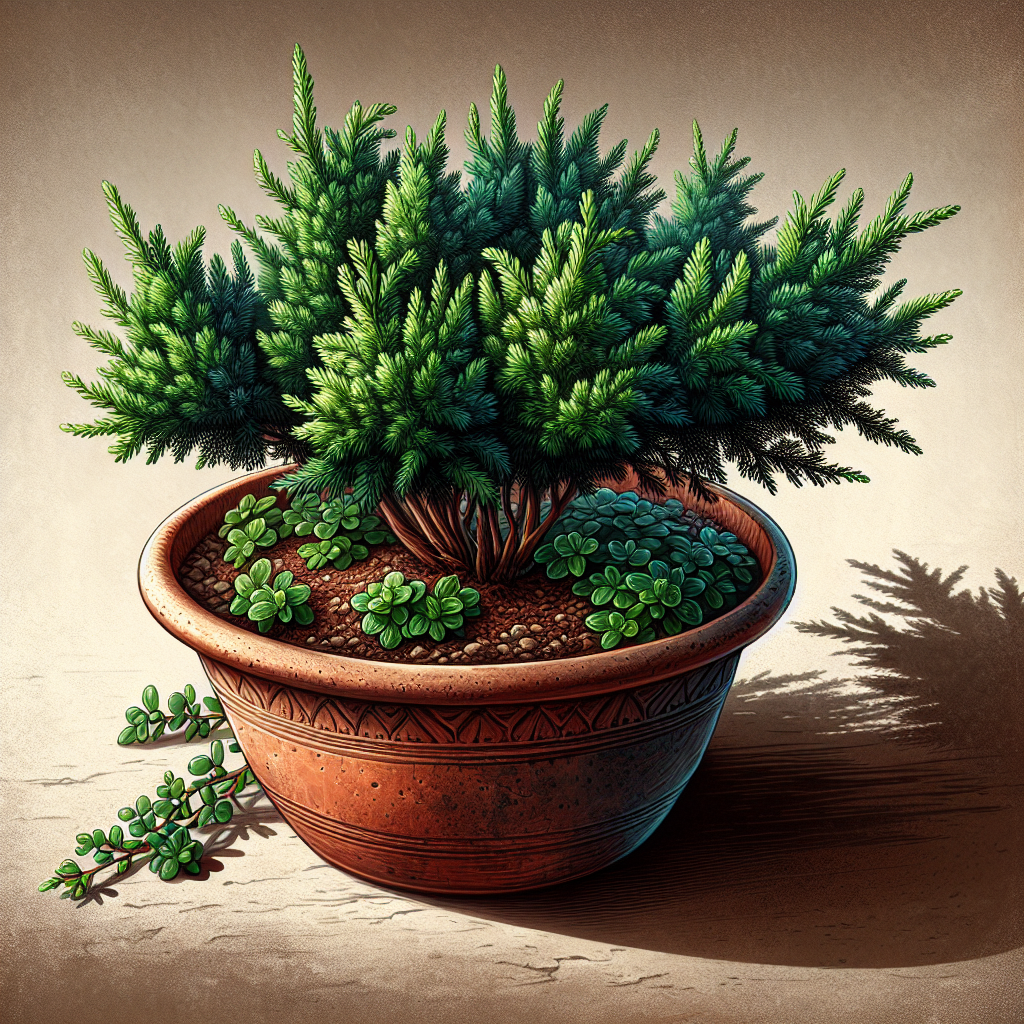Container gardening has gained immense popularity in recent years as more and more people embrace the idea of growing plants in limited spaces. One plant that can bring delightful beauty to your container garden is the juniper. Junipers are versatile, low-maintenance plants that can thrive well in containers if provided with the right growing conditions. In this article, we will explore how you can grow junipers successfully in containers and enjoy their beauty all year round.
Junipers, belonging to the genus Juniperus, are evergreen coniferous shrubs or trees. They come in various sizes and shapes, making them suitable for different container sizes and styles. Whether you have a small balcony or a spacious patio, you can find a juniper variety that fits perfectly into your container garden.
The first step to growing junipers successfully is selecting the right container. The size of the container is crucial as it determines the growth potential of your juniper. For dwarf or compact varieties, choose a container that provides enough space for root development while keeping the plant appropriately contained. A general rule of thumb is to select a pot that is 1-2 inches wider than the root ball of your juniper.
Next, ensure that your container has proper drainage holes at the bottom to prevent waterlogging. Excess moisture can result in root rot and other diseases, which adversely affect the health of your juniper. To improve drainage further, place a layer of gravel or broken pottery shards at the base of the pot before adding soil.
When it comes to soil selection for junipers, opt for well-draining soil mixes specifically formulated for conifers or acidic-loving plants. These mixes consist of organic matter such as peat moss or compost combined with sand or perlite to promote drainage while retaining moisture. Avoid using regular garden soil as it tends to become compacted in containers, hindering root growth.
Once you have prepared your container with appropriate soil and drainage measures, it’s time to choose a suitable juniper variety. Some popular dwarf juniper varieties that thrive well in containers include Juniperus procumbens ‘Nana’ and Juniperus squamata ‘Blue Star.’ These compact cultivars have slow growth rates and require minimal pruning, making them ideal for container gardening.
When it comes to sunlight requirements, junipers are generally sun-loving plants. They prefer at least six hours of direct sunlight per day to maintain their beautiful foliage color and promote healthy growth. Place your container in a location that receives ample sunlight to ensure the best results.
Junipers are known for their drought tolerance once established, but they still require regular watering during the initial growing phase. Water your juniper deeply whenever the top inch of soil feels dry to the touch. Avoid overwatering, as it can lead to root rot or other fungal diseases. To check moisture levels, insert your finger into the soil up to the second knuckle – if it feels dry at that depth, it’s time to water.
Fertilization is essential for promoting healthy growth and maintaining vibrant foliage color. Use a slow-release fertilizer formulated specifically for evergreen plants or conifers during the growing season. Apply according to the package instructions, usually once every three months. Be careful not to over-fertilize, as excessive nutrients can burn the roots of your juniper.
Pruning is another crucial aspect of juniper care in containers. Regular pruning helps maintain the desired shape and size while encouraging dense growth. In early spring before new growth begins, prune any dead or damaged branches by cutting them back to healthy wood using clean pruning shears. You can also lightly trim back any overgrown areas to maintain an aesthetically pleasing shape.
In addition to proper maintenance practices, protecting your container-grown junipers from extreme weather conditions is important for their overall health and longevity. During winter months, move your pots indoors or to a sheltered area to protect them from frost or freezing temperatures. If this is not possible, provide insulation by wrapping the pots with burlap or placing them in a protective structure like a cold frame.
Container-grown junipers are generally less susceptible to pests and diseases compared to their counterparts grown in the ground. However, keep an eye out for common issues such as aphids, spider mites, or fungal infections. If you notice any problems, treat them promptly with organic insecticides or fungicides to prevent further damage.
In conclusion, growing junipers in containers can bring immense delight and beauty to your gardening space. With proper container selection, well-draining soil, appropriate sunlight exposure, regular watering and fertilization, and timely maintenance practices such as pruning and protection from extreme weather conditions, you can successfully cultivate lush and vibrant junipers in your container garden. So why wait? Get started on your juniper container gardening journey today and enjoy the year-round beauty they have to offer!













